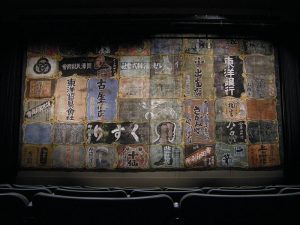There are two functions of ほど that may throw you off when you first encounter them. The first is a sentence such as this:
修理には一週間ほどかかります。
Here it is synonymous with くらい or ぐらい: The repairs will take about a week. You will know that it is functioning in this way when it follows a quantity. Note that it is not used with times or dates that do not involve duration.
The other unusual use of ほど is actually just a stealth version of the basic “extent” sense. Consider this example:
悪い奴ほどよく眠る。
This sentence, which is the title of a film by Kurosawa Akira, means “The more evil someone is, the better they sleep.”
One more example:
そういう言葉ほど、・・・はっきりくっきり聞こえた。
松田青子、「おにいさんがこわい」
This sentence means, “The more the words were of that sort, the more clearly and distinctly he could hear them.”
This ほど is not actually a different sense; it can be thought of, instead, as an abbreviation “であればあるほど”.

Recent Comments